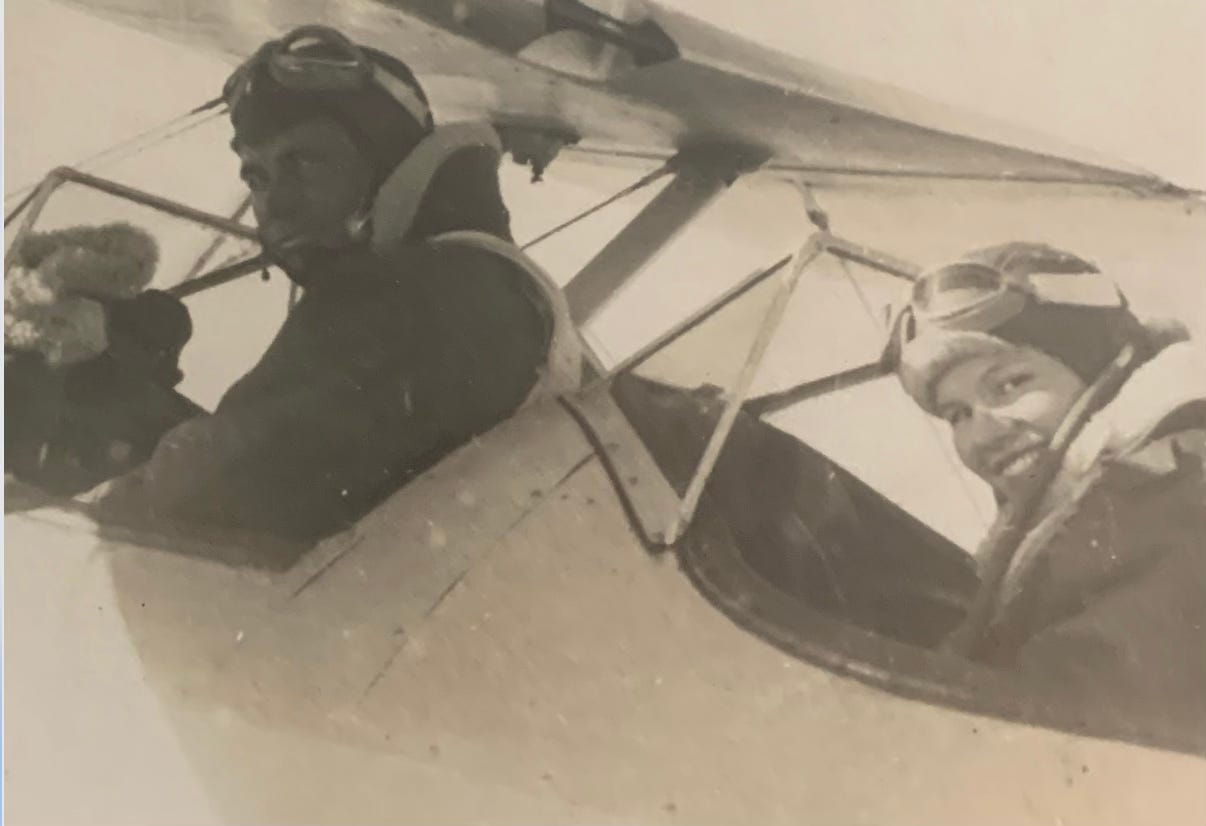Thinking about the objects and stories that shape us
My grandfather's experience as a prisoner of war
Note: This essay describes conditions in a German prison camp during WWII.
As a design historian, I'm as interested in the stories objects carry as I am in their form and quality. Sometimes, these stories are about beauty or utility, but often, they speak to more profound truths. As my youngest son turned seven this week, I've been thinking particularly about the stories we inherit. I have what my kids call my 'treasure chest' - filled with mementos and memories: a matchbook from my great-grandmother's house, a token from a carousel in Paris, a rock I've carried since I first found it in a spring runoff creek in the hills behind my childhood home in Vermont. And tucked away in a corner of the box is my grandfather's battered compass.
This morning, the house was filled with what my son calls his 'bird whistles' - a newly acquired skill that makes our home sound like a menagerie. I'm equal parts charmed and annoyed by this constant soundtrack. Earlier, he clambered into my lap, and his warm, heavy body felt like a mooring—a mooring I needed. I've been up for hours, trying to make sense of the news and deciding there was no making sense of it.
That compass in my treasure chest belonged to my grandfather, a US fighter pilot in WWII. I first heard this story when I was around my son's age: after numerous combat missions, his plane was shot down in a firefight over Northern Africa. He and his copilot parachuted to safety, only to be captured by the Germans. He spent the rest of the war in a series of prison camps, enduring conditions that still fill me with horror. There wasn't enough food or medical care. His Nazi captors conducted 'forced marches' between camps - the misery was deliberately engineered, and prisoners who collapsed were shot. During one such march, my grandfather passed out from starvation and dehydration. And the story - my story - could have ended there, before my mother was born, before my sister and I, before my children. However, in that moment of peril, another prisoner, just as starved as my grandfather, just as desperate to survive, picked my grandfather up off the ground and carried him the rest of the way to the next camp on his back - yes, carried my unconscious grandfather on his back for miles. It is hard for me to breathe every time I think of this man's courage, generosity, and grit. Whenever my grandfather reached this part of the story, he would get a vacant look on his face, and his hands were always busy, with coins from his pocket or folding a receipt neatly. He never found out who had carried him; he'd woken up alone in the new POW camp.
He would be aghast at what has happened politically in the past few weeks, particularly the attempt to dismantle the US government in such an aggressive, slipshod way, with little regard for American security, particularly our nuclear security. After he returned from the war, my grandfather trained as a lawyer and spent the rest of his life as a professor, teaching international tax law and training a generation of diplomats. His students still periodically reach out to my mother, sharing how much he taught them and how much he meant to them.
As my son's bird whistles drift through the house, I realize the objects and stories we inherit carry not just memories but obligations, too. If he were still alive, my grandfather would be on the phone; he'd be in local politicians' offices. He could be delightfully (embarrassingly) shameless when the cause demanded it (he once took me along on an uninvited visit to the Governor of Massachusetts' house). At his best, my grandfather was unflappable and unafraid. He would see through the chaos and posturing of the last few weeks and be angry at its stupidity and the willful disregard for the rule of law. He'd be making NOISE with humor, intelligence, and charisma. He would want all of us to find our courage; he'd want us, despite the odds, to keep going, to carry each other, and choose action when despair would be easiest.




